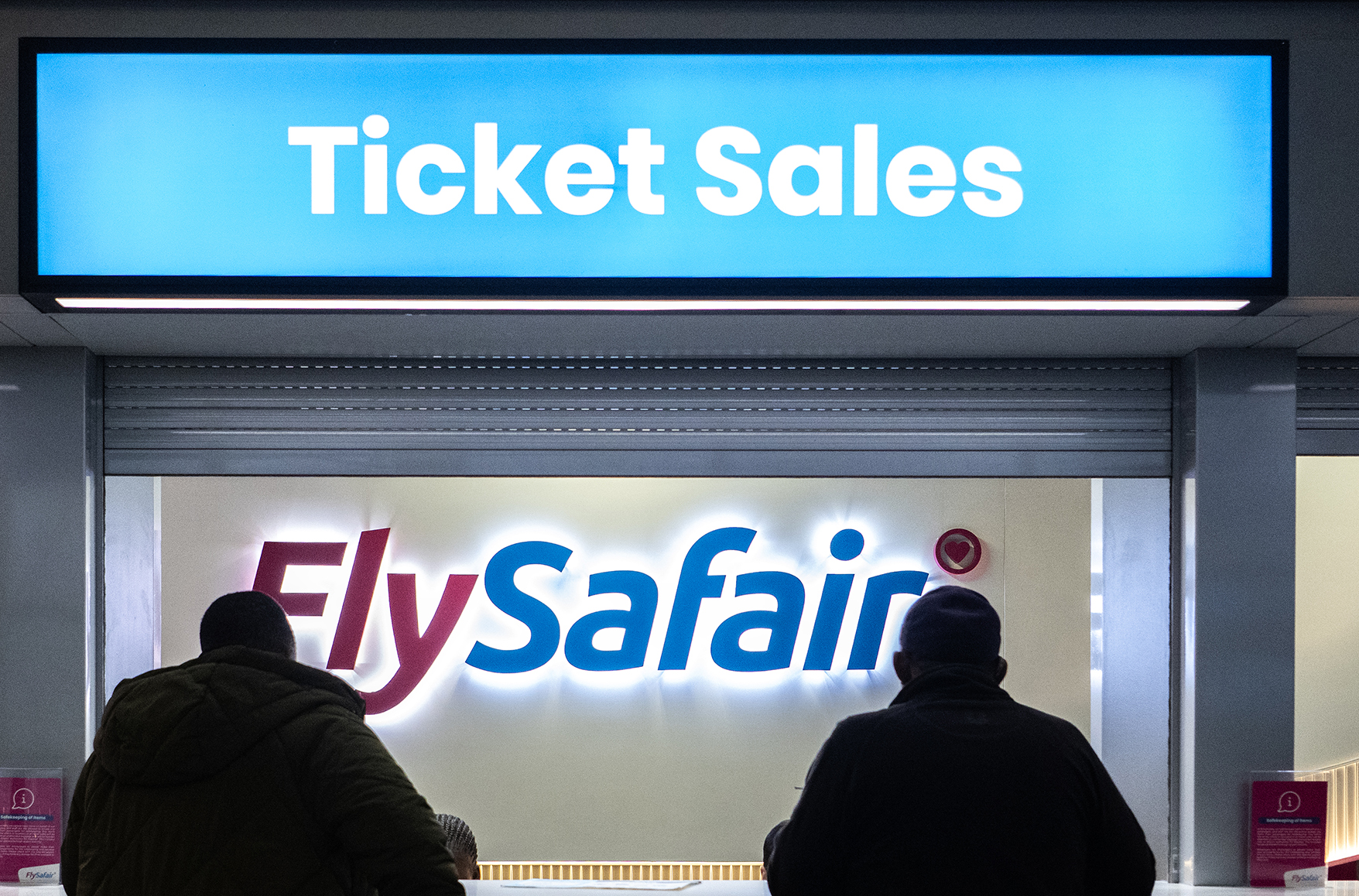FlySafair, South Africa’s largest domestic airline, has entered a rare employer-initiated work stoppage after wage negotiations with the South African Cabin Crew Association (Sacca) broke down on Monday night, 3 November 2025.
The low-cost carrier says it took this step “to facilitate a swift and orderly resolution” rather than wait for a strike that might have caused “maximum disruption to the flying public”. But the move also signals how deeply strained relations have become between the airline and its crew.
Sacca says FlySafair’s cabin crew have been expected to work through legally mandated lunch breaks, sometimes without access to proper rest facilities or even the ability to eat on duty.
Part pay, part principle
That lunch hour grievance has become symbolic: it’s about workers wanting their time, as much as their money, to be acknowledged.
The union has also raised broader concerns about how the Labour Relations Act is interpreted in the airline industry, although both sides have agreed to seek clarification from the Department of Labour.
FlySafair says it offered what it calls an “exceptionally generous” deal:
- 7% salary increase
- 5% annual bonus
- Experience-based pay progression
- Additional monthly allowances
Put together, the airline says the offer would result in an effective pay bump of between 16% and 19%, well above the 3-5% increases that most South Africans are seeing this year.
Kirby Gordon, FlySafair’s chief marketing officer, says the airline must “balance rewarding staff with safeguarding long-term sustainability” in a tight, low-margin industry.
Sacca, however, rejected the offer outright.
Mile high emotions
“We value our cabin crew enormously and have aimed to strike a balance between rewarding them and safeguarding the long-term sustainability of the airline,” Gordon said in a statement shared with Daily Maverick.
But Sacca argues that the dispute isn’t just about numbers.
Gordon acknowledged the emotional side of the conflict: “This strike, and the settlement agreement that needs to be signed, is fundamentally about compensation and about members feeling heard, both within the organisation and more broadly. We acknowledge and respect that.”
The airline has maintained full crew coverage from employees “willing to work”, supported by a pre-planned reduction in its November flight schedule for annual maintenance. The airline reiterated that “our schedule is secure and there will be no interruption to flights”.
Sacca disputes that claim, alleging the airline has “drastically reduced” operations and is using temporary, inexperienced replacements.
Wait, what is a lockout?
A lockout is the employer’s version of a strike, a legal suspension of work designed to push both parties back to the table. While unions use strikes to apply pressure by withdrawing labour, employers use lockouts to control when and how a work stoppage takes place.
It’s a bold strategy in aviation, where reputation and reliability are inseparable. But if FlySafair succeeds in navigating this dispute without cancellations or chaos, it may set a new precedent for labour management in South Africa’s low-cost airline sector.
A high-stakes standoff
The airline commands roughly two-thirds of South Africa’s domestic market, and any prolonged disruption would have wide-reaching implications for tourism, logistics and business travel, particularly in the lead-up to the festive season and the G20 period.
Sacca, by contrast, represents a similar portion of the country’s cabin crew.
The company has applied for Section 150 mediation through the Commission for Conciliation, Mediation and Arbitration (CCMA), a process designed for disputes with public interest implications.
“Our crew play an essential role in delivering a safe, friendly and reliable service,” said Gordon. “We hope to reach an agreement soon and will continue working towards a resolution founded in respect, fairness and long-term sustainability.” DM




 Passengers queue at a FlySafair ticket office in Cape Town. (Photo: Gallo Images / Die Burger / Jaco Marais)
Passengers queue at a FlySafair ticket office in Cape Town. (Photo: Gallo Images / Die Burger / Jaco Marais)